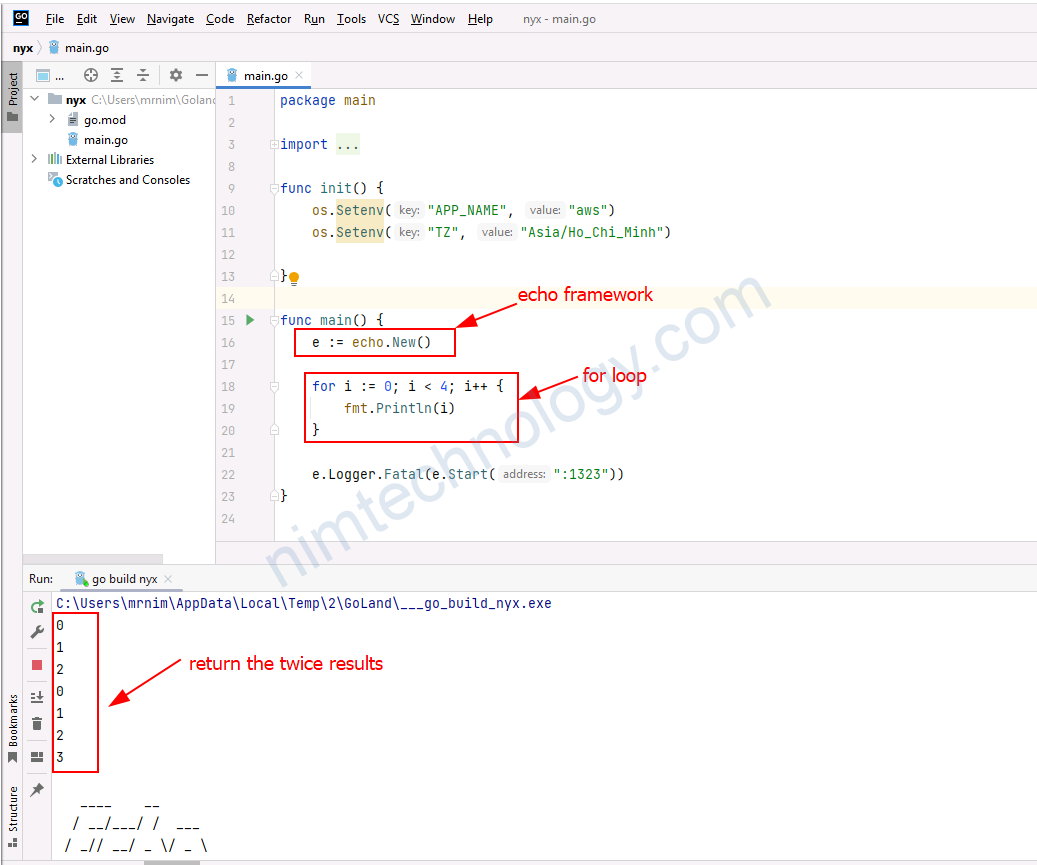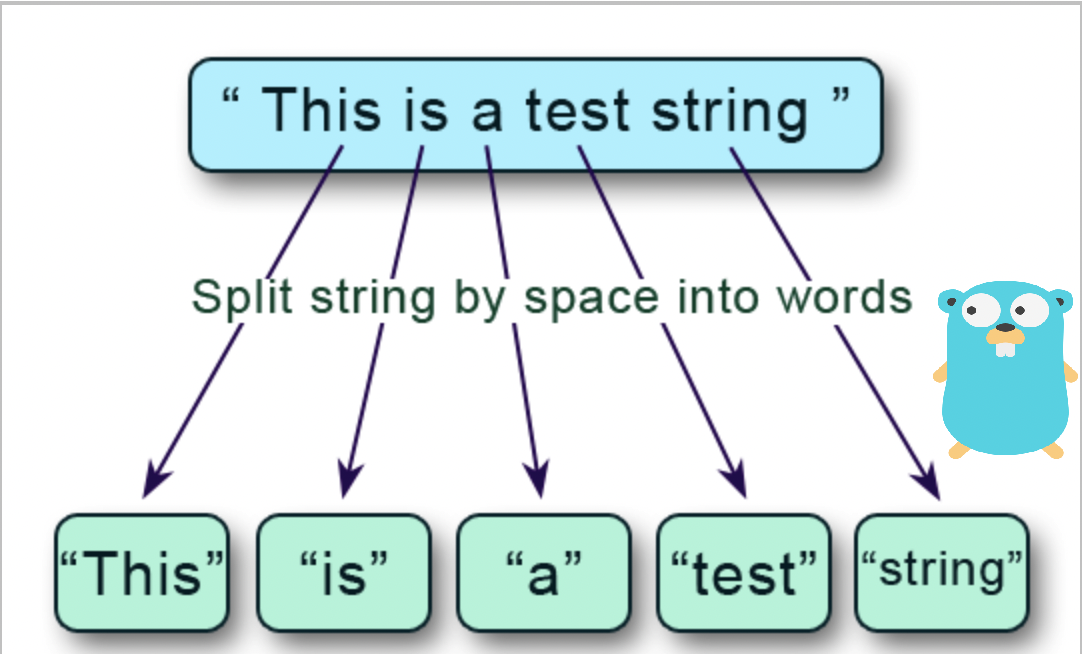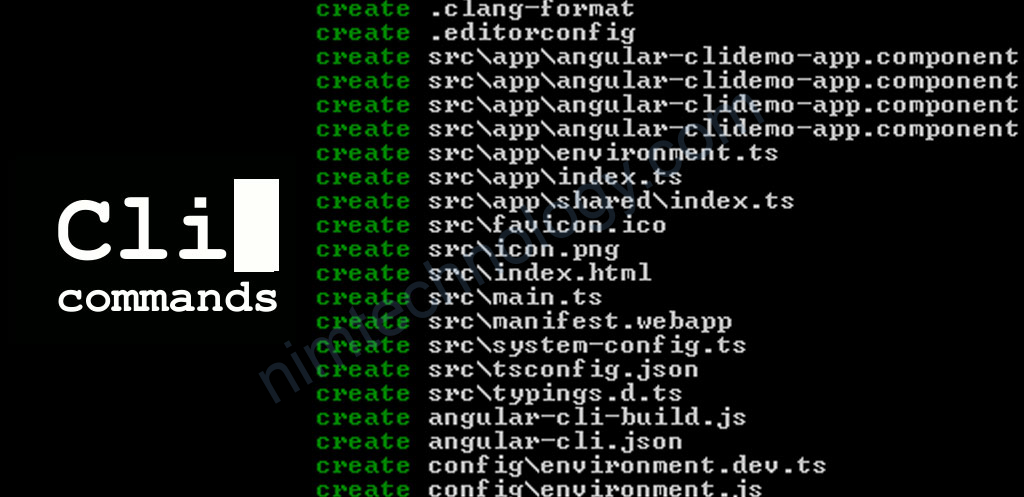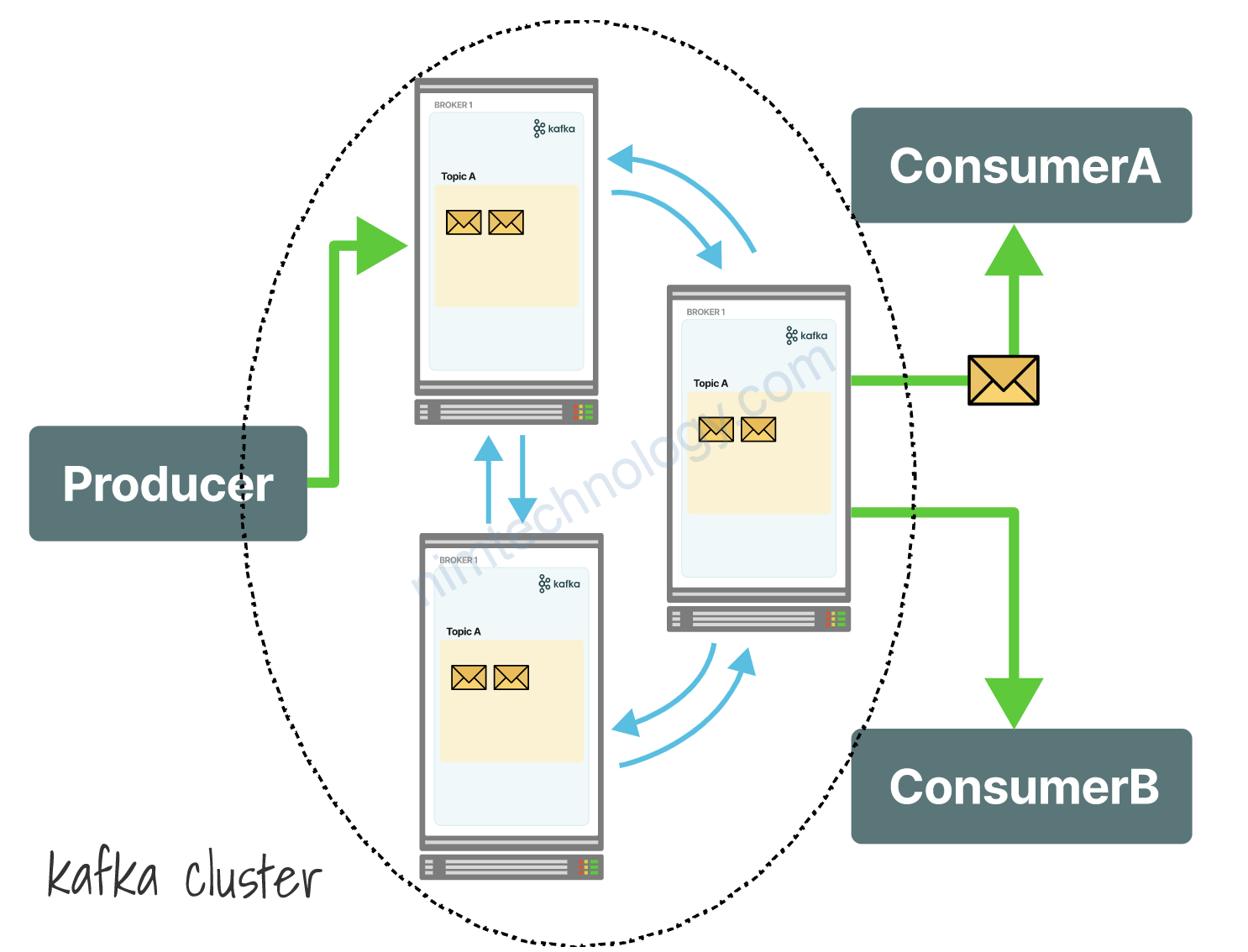1) Overview
Bạn cần viết 1 application để connect vào kafka bằng Golang.
Chúng ta có 2 lựa chọn:
https://github.com/confluentinc/confluent-kafka-go
https://github.com/IBM/sarama
Hãy tìm hiểu về sơ về cách thức hoạt động và ưu nhược điểm của 2 package trên.
confluent-kafka-go
Key Features:
- High Performance: It’s a lightweight wrapper around
librdkafka, a C client known for its performance. - Reliability: Leverages the work done in
librdkafkaacross multiple clients. - Support: Offers commercial support through Confluent.
- Future Proof: Developed by the creators of Kafka, ensuring it keeps pace with Apache Kafka and Confluent Platform developments.
sarama
Key Features:
- API Documentation: Offers detailed API documentation and examples.
- Testing Support: Includes mocks for testing in the
mockssubpackage. - Compatibility and Stability: Provides a “2 releases + 2 months” compatibility guarantee for Kafka and Go versions.
- Contributing: Detailed contribution guidelines and technical information available on its wiki.
Comparison and Considerations
- Performance vs. Ease of Use:
confluent-kafka-gomight offer better performance due to its direct reliance onlibrdkafka, whereassaramacould be more flexible or easier to use, depending on its API and implementation. - Support and Reliability:
confluent-kafka-gohas the backing of Confluent, which might offer better reliability and support, especially in a commercial context. - Community and Documentation: While both have good documentation,
saramaseems to emphasize community involvement and extensive documentation, including a FAQ section and testing support.
Hoặc bạn có thể tham khảo link này:
https://www.reddit.com/r/golang/comments/olrd34/confluentkafkago_or_shopifysarama/
Example code.
confluent-kafka-go
package main
import (
"fmt"
"github.com/confluentinc/confluent-kafka-go/v2/kafka"
)
func main() {
p, err := kafka.NewProducer(&kafka.ConfigMap{"bootstrap.servers": "<HOST or IP:PORT>"})
if err != nil {
panic(err)
}
defer p.Close()
// Delivery report handler for produced messages
go func() {
for e := range p.Events() {
switch ev := e.(type) {
case *kafka.Message:
if ev.TopicPartition.Error != nil {
fmt.Printf("Delivery failed: %v\n", ev.TopicPartition)
} else {
fmt.Printf("Delivered message to %v\n", ev.TopicPartition)
}
}
}
}()
// Produce messages to topic (asynchronously)
topic := "<Topic-Name>"
for _, word := range []string{"Welcome", "to", "the", "Confluent", "Kafka", "Golang", "client"} {
p.Produce(&kafka.Message{
TopicPartition: kafka.TopicPartition{Topic: &topic, Partition: kafka.PartitionAny},
Value: []byte(word),
}, nil)
}
// Wait for message deliveries before shutting down
p.Flush(15 * 1000)
}
In this example:
- Replace
"HOST or IP:PORT"with the address of your Kafka broker. - Replace
"Topic-Name"with the name of the Kafka topic you want to send the message to. - The messages
"Welcome", "to", "the", "Confluent", "Kafka", "Golang", "client"is sent to the Kafka topic. You can replace this with any message you wish to send.
Dockerfile
It’s a lightweight wrapper around librdkafka, a C client known for its performance.
nên là việc Dockerfile cũng có nhiều các đặt biệt.
https://stackoverflow.com/questions/76177554/how-can-i-fix-my-docker-build-failing-while-my-go-build-succeeds-dockerfile-inc (Bạn nên đọc phần update)
FROM golang:1.21.5-alpine # Update and install necessary packages RUN apk update && apk add git RUN apk add --no-progress --no-cache gcc musl-dev # Set environment variables ENV CGO_ENABLED=1 ENV GO111MODULE=on ENV GOPATH /go ENV PATH $GOPATH/bin:/usr/local/go/bin:$PATH # Create and set working directory RUN mkdir -p "$GOPATH/src" "$GOPATH/bin" && chmod -R 777 "$GOPATH" WORKDIR $GOPATH/src/devops # Copy the source code COPY . . # Download dependencies RUN go mod download # Build the application RUN GOOS=linux go build -tags musl -ldflags '-extldflags "-static"' -o app # Set the entry point for the container ENTRYPOINT ["./app"] # Expose the port the app runs on EXPOSE 1994
sarama
package main
import (
"log"
"github.com/IBM/sarama"
)
func main() {
// Kafka broker configuration
brokers := []string{"localhost:9092"} // replace with your Kafka broker addresses
// Create a new Sarama config instance
config := sarama.NewConfig()
config.Producer.Return.Successes = true
// Create a new producer using the given broker list and config
producer, err := sarama.NewSyncProducer(brokers, config)
if err != nil {
log.Fatalf("Failed to start Sarama producer: %s", err)
}
defer producer.Close()
// Define the message to send
topic := "your_topic" // replace with your Kafka topic
message := &sarama.ProducerMessage{
Topic: topic,
Value: sarama.StringEncoder("Hello, Kafka!"),
}
// Send the message
partition, offset, err := producer.SendMessage(message)
if err != nil {
log.Fatalf("Failed to send message: %s", err)
}
log.Printf("Message sent to partition %d at offset %d\n", partition, offset)
}
In this example:
- Replace
"localhost:9092"with the address of your Kafka broker. - Replace
"your_topic"with the name of the Kafka topic you want to send the message to. - The message
"Hello, Kafka!"is sent to the Kafka topic. You can replace this with any message you wish to send.






